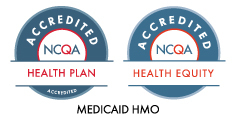
Manage Care

Depression Screening for Adolescents and Adults Tip Sheet
Measure Description
The percentage of members 12 years of age and older who are screened for clinical depression using an age-appropriate standardized tool, performed between January 1 and December 1 of the measurement period.
Incentives are paid to the linked primary care provider (PCP) on an annual basis, following the end of quarter four. For additional information, refer to the CBI Technical Specifications.
- Administrative members at the end of the measurement period.
- Dual coverage members.
- Members in hospice, receiving hospice services or who died during the measurement year.
- Members who have a history of bipolar disorder any time during the member’s history through the end of the year prior to the measurement period.
- Members with depression that started during the year prior to the measurement period.
Note: Laboratory claims with POS 81 are not included to identify exclusions for members with diagnostic codes for bipolar disorder or depression.
Medical records must include the name of the depression screening tool and the result. If the result is positive, follow-up should occur on or up to 30 days after the first positive screen.
Documented follow-up can include any of the following:
- An outpatient, telephone, e-visit or virtual check-in follow-up visit with a diagnosis of depression or other behavioral health condition.
- A depression case management encounter that documents assessment for symptoms of depression or a diagnosis of depression or other behavioral health condition.
- A behavioral health encounter, including assessment, therapy, collaborative care or medication management.
- A dispensed antidepressant medication.
- Documentation of additional depression screening on a full-length instrument indicating either no depression or no symptoms that require follow-up (i.e., a negative screen) on the same day as a positive screen on a brief screening instrument.
Screening is only reimbursable with a validated screening tool. Screening tools do not need to be sent to the Alliance and must be maintained in the patient’s medical record. Eligible tools include:
| Instruments for Adolescents (<17 years) | Results Considered as Positive Finding |
|---|---|
| Patient Health Questionnaire (PHQ-9)® | Total Score ≥10 |
| Patient Health Questionnaire Modified for Teens (PHQ-9M)® | Total Score >10 |
| Patient Health Questionnaire-2 PHQ2® | Total Score ≥3 |
| Beck Depression Inventory-Fast Screen (BDI-FS)® | Total Score ≥8 |
| Center for Epidemiologic Studies Depression Scale-Revised (CESD-R) | Total Score ≥17 |
| Edinburgh Postnatal Depression Scale (EPDS) | Total Score >10 |
| PROMIS Depression | Total Score (T Score) >60 |
| Instruments for Adults (18+ years) | Results Considered as Positive Finding |
|---|---|
| Patient Health Questionnaire 9 (PHQ-9)® | Total Score ≥10 |
| Patient Health Questionnaire-2 PHQ2® | Total Score ≥3 |
| Beck Depression Inventory-Fast Screen (BDI-FS)® | Total Score ≥8 |
| Beck Depression Inventory (BDI or BDI II) | Total Score ≥20 |
| Center for Epidemiologic Studies Depression Scale-Revised (CESD-R) | Total Score ≥17 |
| Duke Anxiety-Depression Scale (DUKE-AD) | Total Score ≥30 |
| Geriatric Depression Scale Short Form (GDS) | Total Score ≥5 |
| Geriatric Depression Scale Long Form (GDS) | Total Score ≥10 |
| Edinburgh Postnatal Depression Scale (EPDS) | Total Score ≥10 |
| My Mood Monitor (M-3)® | Total Score ≥5 |
| PROMIS Depression | Total Score (T Score) >60 |
| Clinically Useful Depression Outcome Scale (CUDOS) | Total Score ≥31 |
The measure uses non-billable LOINC codes which need a corresponding result in order for the screening to count in the measure.
| Code Type | Code | Code Description |
|---|---|---|
| LOINC | 89208-3 | Beck Depression Inventory Fast Screen total score [BDI] (Pediatric and Adult) |
| LOINC | 89209-1 | Beck Depression Inventory II total score [BDI] (Adult) |
| LOINC | 89205-9 | Center for Epidemiologic Studies Depression Scale-Revised total score [CESD-R] (Pediatric) |
| LOINC | 99046-5 | Edinburgh Postnatal Depression Scale [EPDS] (Pediatric and Adult) |
| LOINC | 90853-3 | Final score [DUKE-AD] (Adult) |
| LOINC | 48545-8 | Geriatric depression scale (GDS) short version total (Adult) |
| LOINC | 48544-1 | Geriatric depression scale (GDS) total (Adult) |
| LOINC | 55758-7 | Patient Health Questionnaire 2 item (PHQ-2) total score [Reported] (Pediatric and Adult) |
| LOINC | 44261-6 | Patient Health Questionnaire 9 item (PHQ-9) total score [Reported] (Pediatric and Adult) |
| LOINC | 89204-2 | Patient Health Questionnaire-9: Modified for Teens total score [Reported.PHQ.Teen] (Pediatric) |
| LOINC | 71965-8 | PROMIS-29 Depression score T-score (Pediatric and Adult) |
| LOINC | 90221-3 | Total score [CUDOS] (Adult) |
| LOINC | 71777-7 | Total score [M3] (Adult) |
Data for this measure is collected using provider data submissions via the Data Submission Tool (DST) on the Provider Portal. To find gaps in data:
- Run a report from your electronic health record (EHR) system; or
- Manually compile patient data. For example, download your Care-Based Incentives Measure Details report from the Provider Portal and compare it to your EHR/paper records.
This measure allows providers to submit depression screenings from the clinic EHR system or paper records to the Alliance by the DST contractual deadline. To submit, upload data files to the DST on the Provider Portal. To be accepted, data must be submitted as a CSV file. Step-by-step instructions are available in the Data Submission Tool Guide on the Provider Portal.
- Perform screening annually, and more frequently based on clinical judgment, consideration of risk factors, comorbid conditions and member life events (e.g., pregnancy).
- Screen patients with a history of depression at every visit.
- Train medical assistants to administer initial depression screen and document results.
- Screen perinatal patients at least once during pregnancy and the postpartum period for both depression and anxiety.
- Include postpartum depression screening at the infant’s well-child visits (one, two, four and six-month well-child visits and beyond). If submitting DST data, use the Medi-Cal ID of the person screened.
- Implement team-based care models, including PCPs, behavioral health clinicians, case managers and psychiatrists,
- Use a call-back program to reach out to patients with positive screens and ensure timely care and engagement.
- Alliance Behavioral Health.
- Alliance Cultural and Linguistic Services are available to network providers.
- Language Assistance Services – Request materials at 800-700-3874, ext. 5504.
- Telephonic Interpreter Service – Directly access a telephonic interpreter 24 hours a day, 7 days a week.
- Interpreter Services – Can be requested for the appointment with the member.
- Virtual Remote Interpreter (VRI) Service – When an in-person interpreter might not be available or easy to access.
- For information about the Cultural and Linguistic Services Program, call the Alliance Health Education Line at 800-700-3874, ext. 5580 or email us at [email protected].
- Alliance Depression Tool Kit.
- Alliance Enhanced Care Management (ECM) and Community Supports.
- Refer Alliance members through the Alliance Provider Portal, email [email protected], mail or fax, or by phone at 831-430-5512.
- For Complex Care Management and Care Coordination, call the Care Management team at 800-700-3874 (TTY: Dial 711).
- Alliance Transportation Services for patients with transportation challenges.
- For non-emergency medical transportation (NEMT) services, call 800-700-3874, ext. 5640 (TTY: Dial 711).
- For non-medical transportation (NMT) services, call 800-700-3874, ext. 5577 (TTY: Dial 711).
- Behavioral Health Primary Care Provider (PCP) Referral Form.
Contact us | Toll free: 800-700-3874


